Enough is enough.
In April 2024, The Ottawa Mission issued our No More Waiting report concerning, shocking levels of homelessness and food insecurity across our city, province and country.
In 2025, things are even worse:
+20%
increase in homelessness across Canada since 2018.
~23%
of Canadians across 10 provinces are food insecure.
80,000 +
Ontarians are homeless, a 25% increase since 2022.
~3,000
people in Ottawa are homeless, a 13% increase since 2021.
25%
of Ottawa households are food insecure.
100% +
our shelter has been at overcapcity for years.
Lives are at stake.
The issues we're facing
As governments argue over which level has the responsibility to address homelessness and food insecurity, community agencies have stepped in to meet these needs — stretching us to the breaking point.
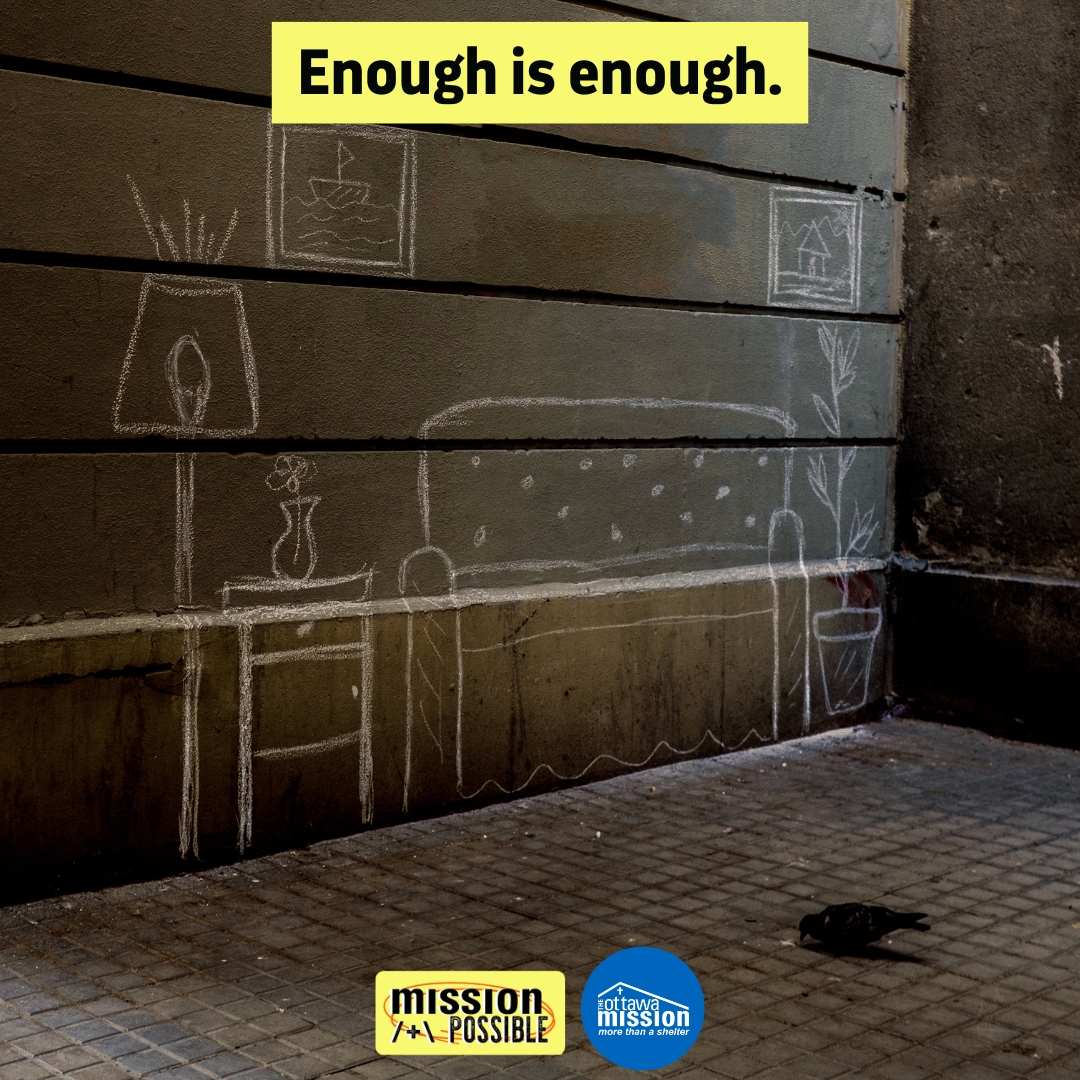
At the federal level
While $561 million is currently invested federally in homelessness, achieving a 50% reduction in chronic homelessness would require an additional $3.5 billion per year.
While public old-age pensions have reduced the risk of food insecurity for recipients, they must be age 65 or older, leaving younger people exposed.
Similarly, the Child Tax Benefit has reduced the risk of severe food insecurity for recipients, but it has not decreased their overall risk.
Across jurisdictions within Canada, almost all income support rates are insufficient, with those dependent on disability and others supports living in deep poverty.
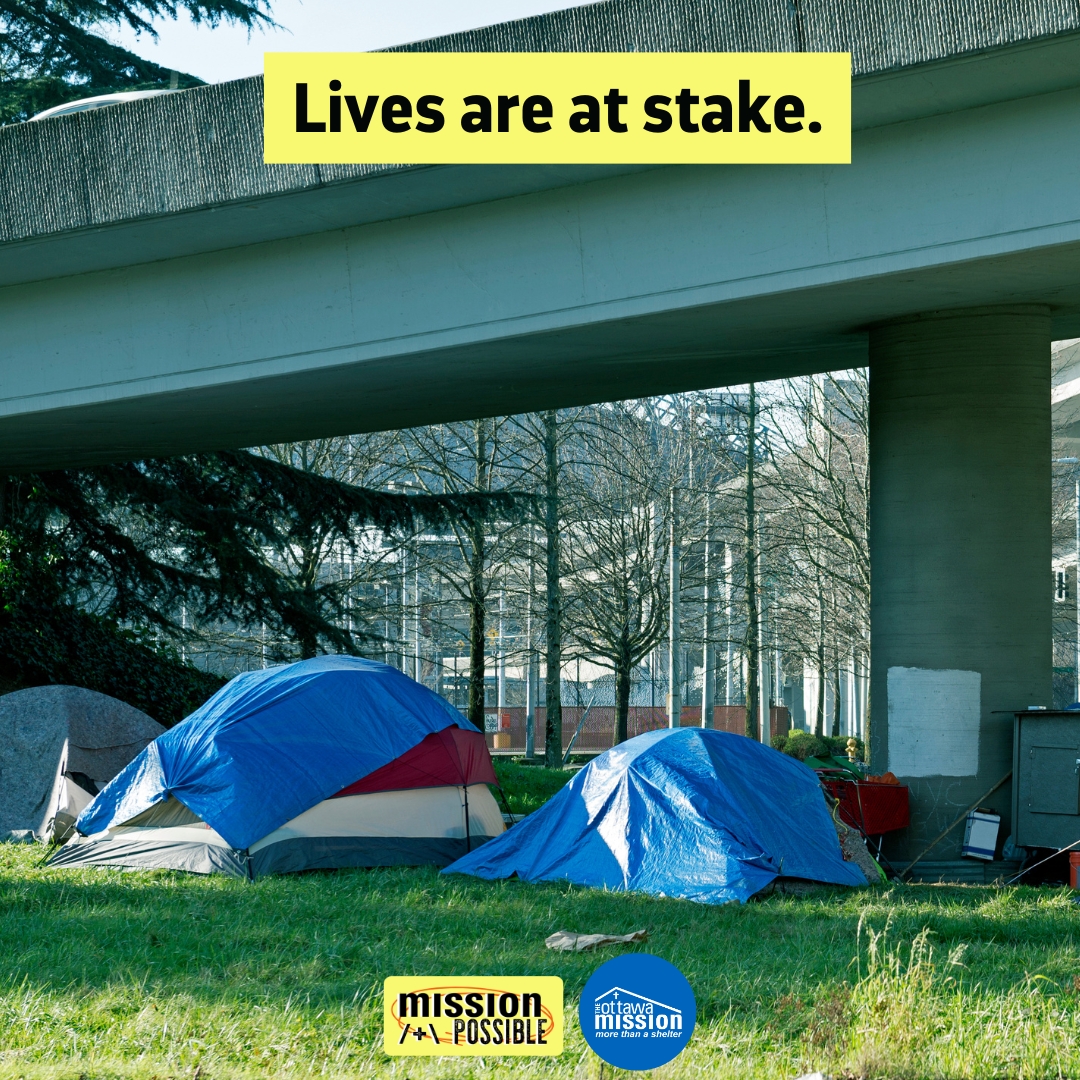
At the provincial level
In Ontario, those relying on Ontario Disability Support and Ontario Works payments are living up to 60% below the poverty line, meaning they don’t have enough income to meet their basic needs.
Enhancements to minimum wage levels also provide increased protection against food insecurity, with higher minimum wage levels associated with reductions in food insecurity. However, Ontario minimum wage levels remain below what is required to meet basic needs.
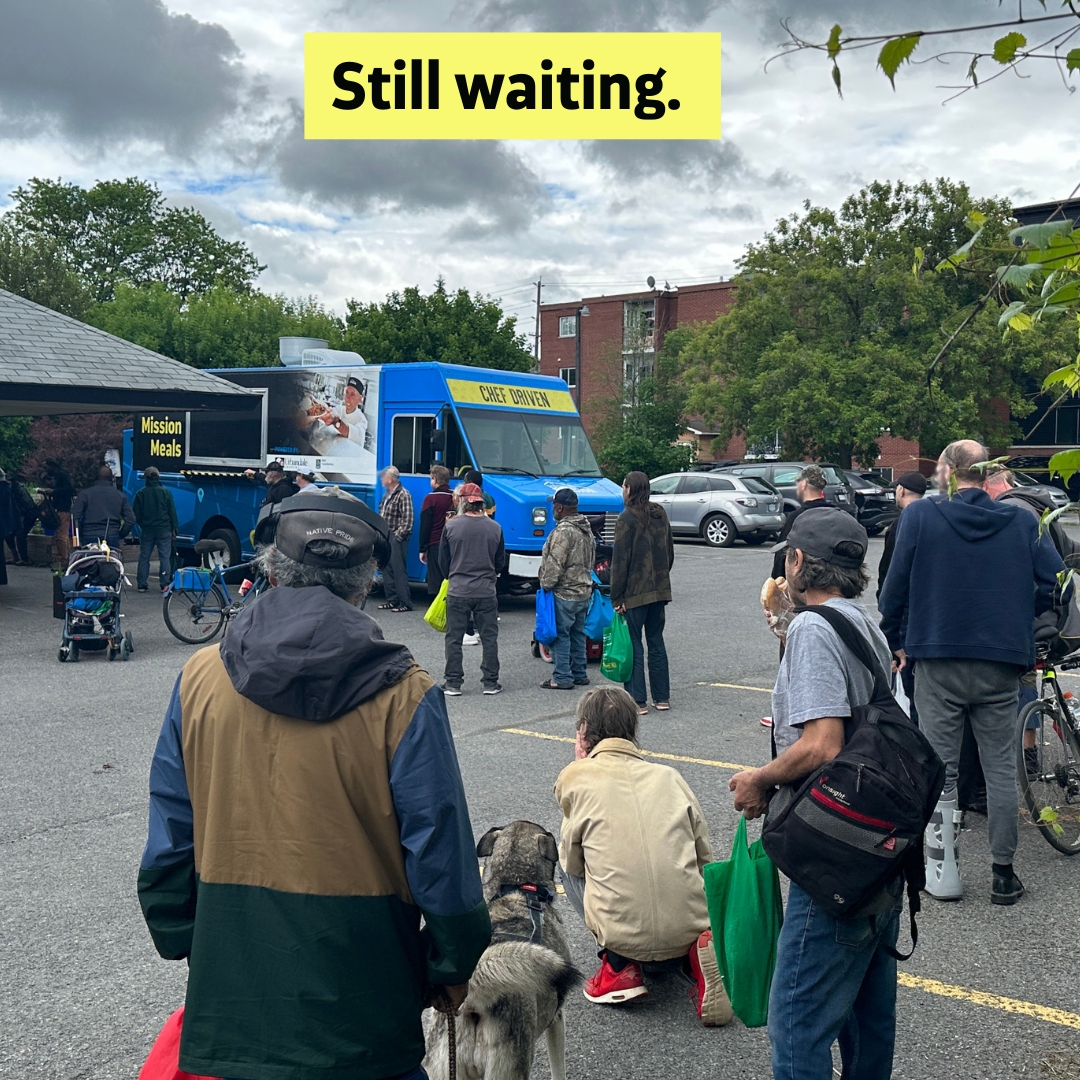
At the local level
Homelessness has grown to almost 3,000 people, a 13% increase since 2021. Of these people, an estimated 300 are living on the street.
Certain populations, including people who are racialized, newcomers, Indigenous populations, gender and sexual minorities, those who have serious health conditions and those on low incomes, bear a disproportionate burden of homelessness.
Food insecurity has risen from one in seven to one in four households. Forty-six percent of those who were homeless stated that they needed support with food security.
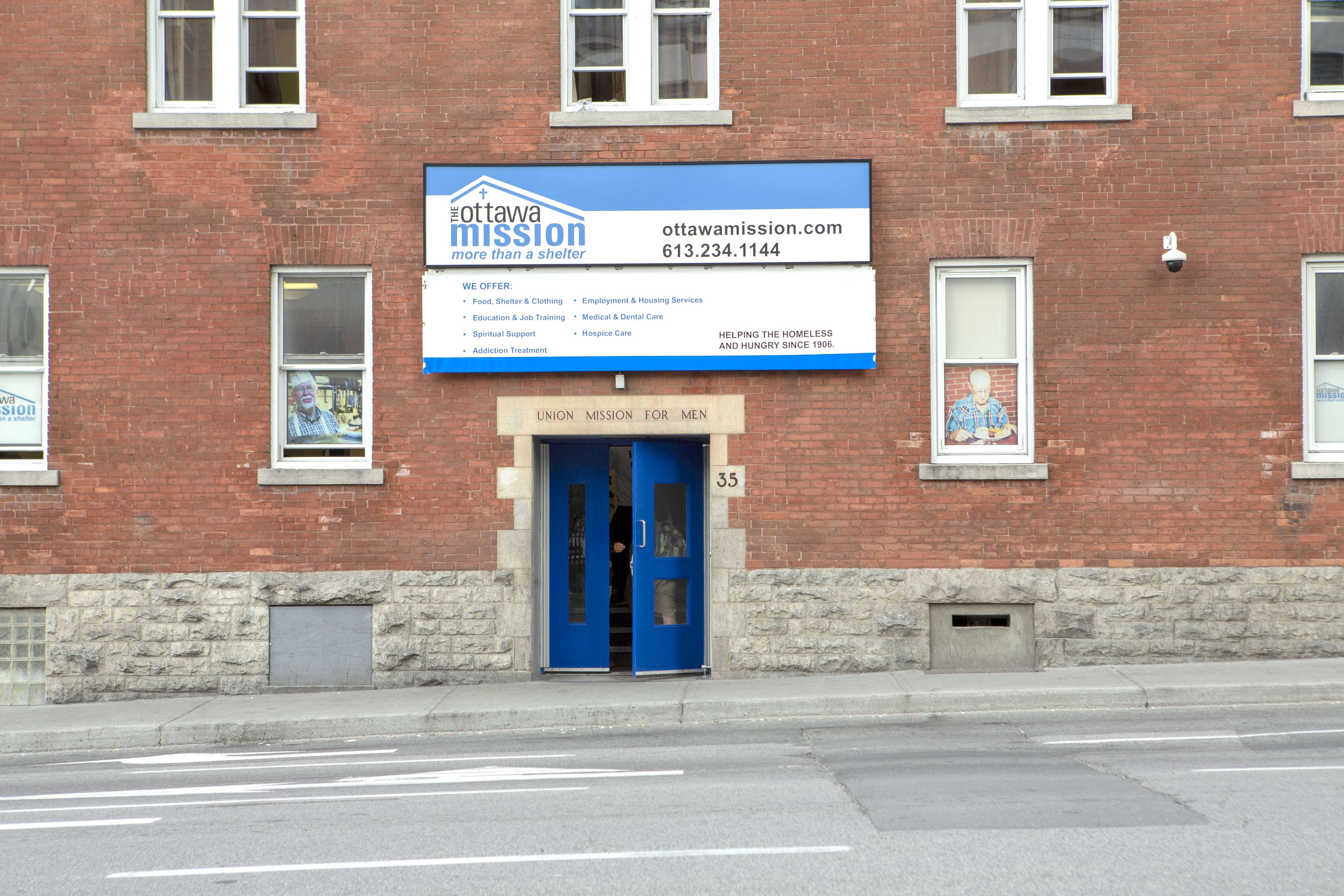
At The Ottawa Mission
Our shelter has been at over 100% capacity for occupancy of shelter beds since 2017. The only exception to this was during the pandemic when we closed some shelter beds to enhance social distancing from 2020–2023, with clients diverted to overflow shelters run by the
City of Ottawa.
Since reopening these beds, we have returned to over 100% capacity, with dozens of clients sleeping on mats in our chapel floor or on chairs in our lounge.
For the past two years, The Mission has served over one million meals to those who live in our shelter and vulnerable community members.
Sadly, this year will be no different.

We call upon the government of Canada to:
Implement a Homelessness Prevention and Housing Benefit to support up to 385,000 households at risk of homelessness and help over 50,000 people leave homelessness.
Create programs for non-profit housing providers to support: including the purchase of existing rental housing projects and hotels, the facilitation of office-to-residential conversions, and the acquisition of vacant land for new builds.

We call upon the government of Ontario to:
Address the erosion of affordable housing across Ontario, by: reintroducing rent controls to buildings erected after November 2018, and fully implementing Bill 97 to amend the Residential Tenancies Act and prohibit bad-faith renovictions.
End chronic homelessness by implementing the recommendations of the 2025 report on homelessness by the Association of Municipalities of Ontario,: including: investing $11 billion over 10 years to create 75,000 new affordable and supportive housing units, and investing $2 billion over eight years to ensure people in encampments are safely housed by increasing the capacity of support services and supportive, transitional and community housing.
Address inadequate incomes for vulnerable Ontarians by: Increasing social assistance rates to enable vulnerable Ontarians to live with dignity and security, increasing the provincial minimum wage to enable earners to meet their expenses, and reviewing the UNESCO findings concerning the 2017–2019 Ontario basic income program, which showed positive impacts for participants, with a view to re-establishing this program.
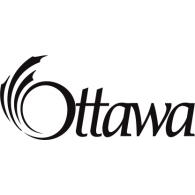
We call upon the City of Ottawa to:
Support measures to address food insecurity within the City’s Poverty Reduction Strategy appropriate to the need.
Support the expansion of not-for-profit housing in Ottawa through: Supplying municipal land at no cost to not-for-profit housing providers and community land trusts, revising zoning to support scaling up affordable housing, and changing the approval process for new not-for-profit housing.
Increase the annual budget of new affordable housing by: returning to the 2023 figure of $30 million for investments in new affordable housing, applying annual increases to this amount reflective of actual housing costs in Ottawa.
Read the full report
Still Waiting Report
The Ottawa Mission's report on the state of homelessness and food insecurity in 2025. What we are asking of our governments and elected officials for help.
Read the reportStill Waiting Summary Report
The summarized version of our report on the state of homelessness and food insecurity in 2025. What we are asking of our governments and elected officials for help.
Read the summary report